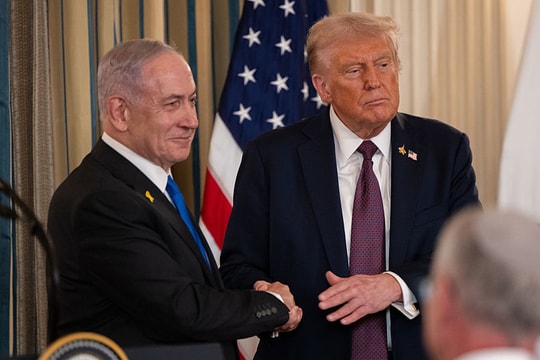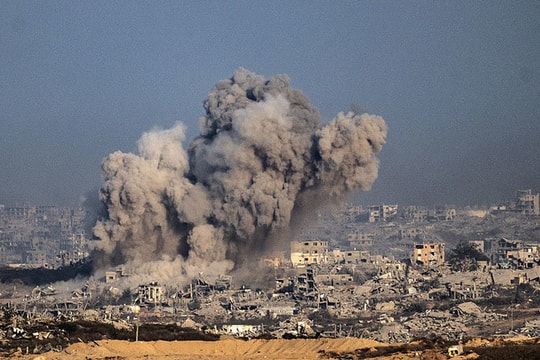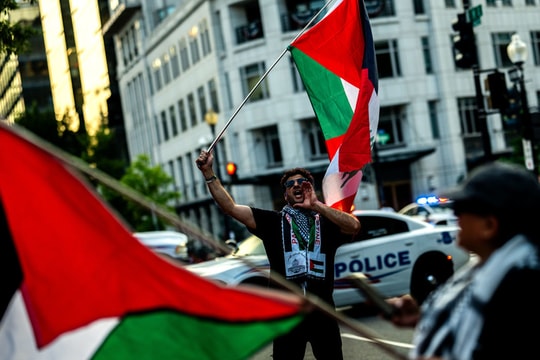Palestinians hope President Trump won't let his words fall to the wayside
(Baonghean) - Promises of a peace deal between the Palestinians and the state of Israel may disappear this week. US President Donald Trump has planned to recognize Jerusalem as the capital of the Jewish state. Public opinion has seen a more unstable future in the Middle East.
Jerusalem Detonator
During the 2016 US presidential campaign, Mr. Trump pledged to move the US Embassy from Tel Aviv to Jerusalem - a long-term goal of Republican politicians. However, based on the actual situation in the region, in June, President Trump temporarily shelved this plan to avoid causing more tension in the Middle East.
On December 1, the US media reported that President Trump may continue to shelve this plan, but is considering recognizing Jerusalem as the capital of Israel and may announce this decision on December 6. The alternative scenario is considered more symbolic than effective in reality. And therefore, it will create less outrage among Palestinians in particular and the Arab community in general.
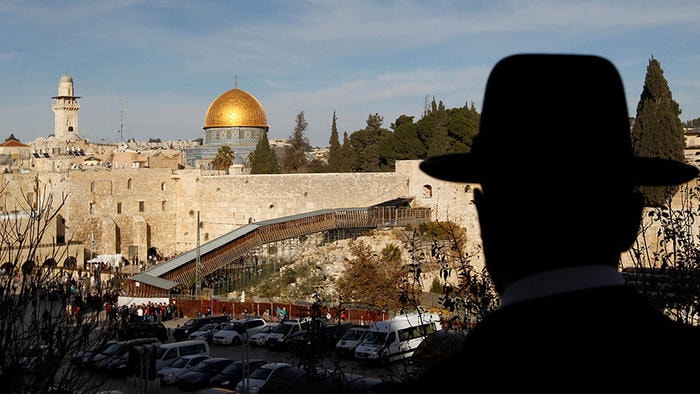 |
| Jerusalem, a sacred land for both Jews and Palestinians (RT). |
However, in essence, this plan still interferes with the core interests of the Palestinian people and the entire Middle East peace. Palestinian President Mahmoud Abbas on December 2 contacted many leaders of Arab and international countries to warn about the risks of any US decision on the Jerusalem territory.
In talks with leaders of Saudi Arabia, Jordan, Egypt, Tunisia, Kuwait, Qatar, the Arab League, the Organization of Islamic Cooperation, France, and the European Union, President Abbas affirmed that any US decision to recognize Jerusalem as the capital of Israel or move its embassy to the city "is very dangerous for peace and stability in the region" and "pushes the region to unpredictable consequences."
On the opposite side, the Palestinian Islamist movement Hamas, which currently controls the Gaza Strip, warned it would call for a new Palestinian uprising if the US recognized Jerusalem as Israel's capital.
In a statement, Hamas said: "Following media reports that US President Donald Trump intends to recognize Jerusalem as the capital of Israel, Hamas warns of the consequences of this decision." Hamas called on the Palestinian people as well as Arab and Muslim countries to prevent this intention.
The Palestine Liberation Organization Executive Committee also stressed that such a move would destabilize the entire region, destroy the peace process, cause the US to lose its role in the region, and incite a wave of extremism.
Previously, on November 30, President Mahmoud Abbas' spokesman, Nabil Abu Rudeinah, said that the US's recognition of Jerusalem as the capital of Israel or moving the US Embassy in Tel Aviv to Jerusalem "are both dangerous for the future of the peace process and will push the region into instability."
Any solution to the Palestinian-Israeli conflict must "ensure East Jerusalem as the capital of an independent Palestinian state," he said, adding that failure to do so "will perpetuate tension, instability and violence."
Promises Fall into Silence
The most significant mark of US President Donald Trump so far was his visit to Israel and Palestine last May. And in a joint statement to the press at the foot of the plane's stairs, both the US President and Israeli Prime Minister Benjamin Netanyahu mentioned "hopes for a broader peace agreement in the region".
This statement was considered by public opinion to be more rhetoric than substance because it lacked a detailed plan on how to achieve it. In his speech, Mr. Netanyahu declared: "Israel is ready to extend the hand of peace to all its neighbors, including the Palestinians."
Mr. Trump happily announced that he “saw new hope” during the trip. He spoke of a “rare opportunity to bring peace and security to this region” and emphasized that “we must increase cooperation to achieve that.” But since then, there has been no new progress for the public to believe that promise and hope are true.
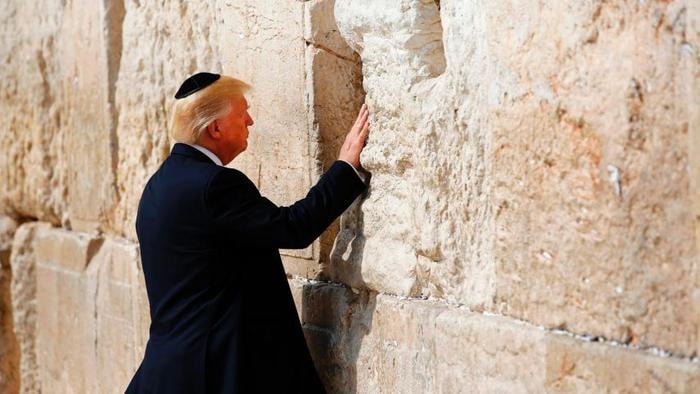 |
| US President Donald Trump visits the Western Wall, a holy site where Jews can pray, in the old city of Jerusalem on May 22 (AFP) |
And so, both allies Israel and the Palestinians may be very disappointed with the position of the Middle East peace process on the foreign policy agenda of the White House owner. First, since meeting with the Israeli prime minister earlier this year, Mr. Trump has not mentioned anything about moving the US Embassy from Tel Aviv to Jerusalem as he once announced.
The recognition of Jerusalem as Israel’s capital, even if only hinted at, could be seen as a way to appease its closest ally. However, the problem is that it will have the opposite effect on the Arab community.
On the other hand, the US President has only suggested ideas. People have not seen Mr. Trump put any pressure on the two Israeli and Palestinian leaders during the talks in May.
Issues related to the peace negotiations between Israel and Palestine such as borders, settlements, terrorist acts, or the long history of coexistence between the Palestinian and Jewish peoples in this hot spot have never been touched upon.
The essence of the Middle East peace process is trust-building. In this respect, Mr. Trump has only achieved half of what he set out to do with the Jewish State.
Until now, not many people believe that the US President's promises to the Palestinians are real, or touch their core interests, for example, "will help expand the industrial zone on the southern border of the West Bank".
US President Donald Trump has not made any gesture of recognition of the State of Palestine, but has also minimized the possibility of recognizing the “two-state” solution that the US is one of the “quartet” sponsors. The Palestinians have realized this early on.
What Mr. Trump mentioned in his meeting with Palestinian President Mahmoud Abbas on May 23 has been repeated many times, but implementing it to achieve real results and bring about real peace is extremely difficult.
Those faint signs show that placing hope in a Middle East peace solution as US President Donald Trump once mentioned is almost unrealistic at this time./.
Phan Tung
| RELATED NEWS |
|---|

